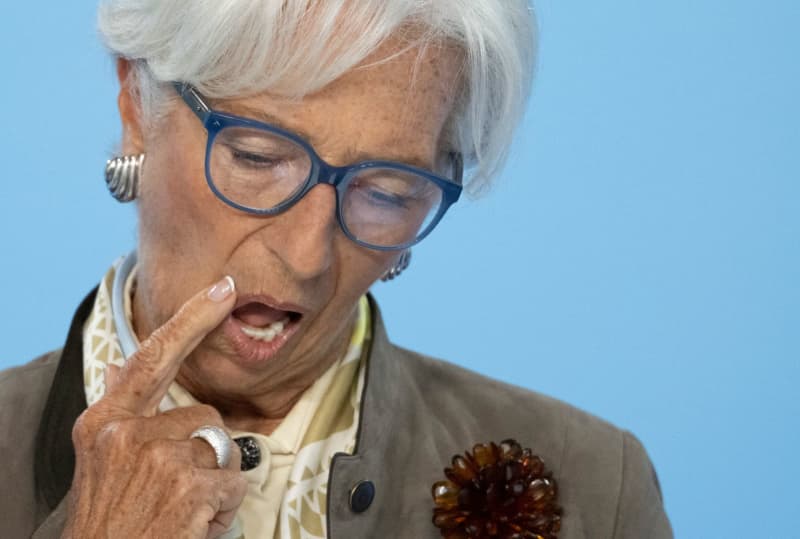Christine Lagarde, President of the ECB, speaks at the press conference of the European Central Bank in Frankfurt. The ECB leaves key interest rates in the eurozone unchanged. Boris Roessler/dpa
The European Central Bank is keeping interest rates in the eurozone unchanged, it said on Thursday, as it looks with concern at the unfolding financial crisis in France, where skyrocketing debt has brought down yet another government.
“Inflation is currently at around the 2% medium-term target and the Governing Council’s assessment of the inflation outlook is broadly unchanged,” ECB President Christine Lagarde said in a statement.
The key deposit rate, which is important for banks and savers in the eurozone, will be held at 2%, the Frankfurt-based lender said, with the refinancing rate, which provides liquidity to the banking system, also to remain at 2.15%.
The ECB also held interest rates steady at the last rate decision in July, not least due to the uncertain environment in the trade dispute with the United States.
In the meantime, the 20-member currency area has been rattled by the latest government crisis in France, which saw prime minister François Bayrou resign on Tuesday after losing a vote of confidence over his austerity budget plans.
France is heavily indebted and faces urgent pressure to rein in public finances. Bayrou had proposed cuts amounting to nearly €44 billion ($51.6 billion) for the coming year, including the abolition of two public holidays — a move that was widely rejected by the public.
There is significant concern that the levels of debt in France, the second-largest eurozone economy, could spiral out of control.
In terms of economic output, France now has the third-highest debt ratio in the EU at 114%, after Greece and Italy.
The country’s budget deficit recently reached 5.8%, well above the EU limit of 3% of economic output.
In this environment, the central bank has adopted a wait-and-see approach after a series of interest rate cuts.
What’s next?
Speculation is rife in the financial markets as to whether the ECB might purchase French government bonds to stabilize the situation.
Under its Transmission Protection Instrument (TPI) programme, the central bank can purchase unlimited amounts of bonds from individual eurozone countries in the event of a crisis.
However, the instrument is intended for use in cases where interest rates on a eurozone country’s securities rise disproportionately as a result of financial speculation.
Before July, the ECB had lowered interest rates eight times within a year. As recently as the spring of 2024, the deposit rate that banks receive when they park money with the ECB was twice as high at 4%.
Many economists expect that the ECB will not adjust the rates again this year after rampant inflation was brought under control.
繼續閱讀
